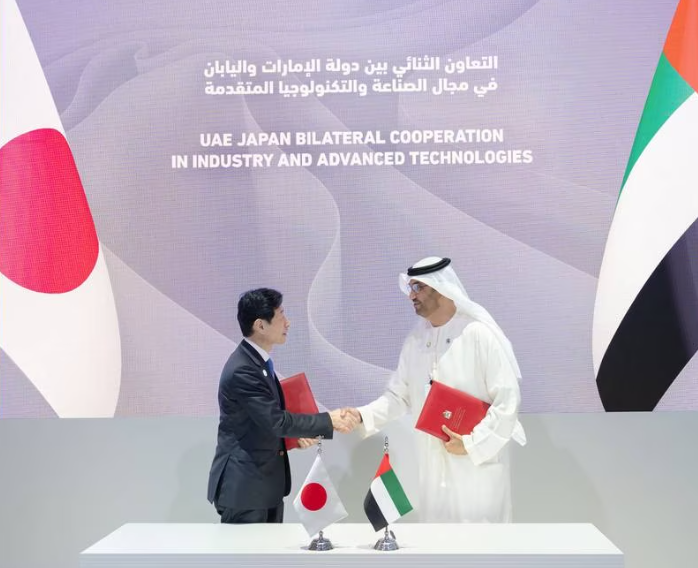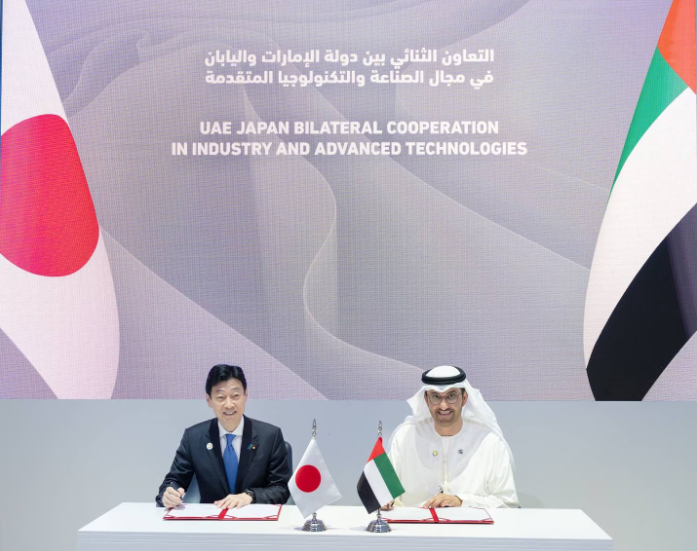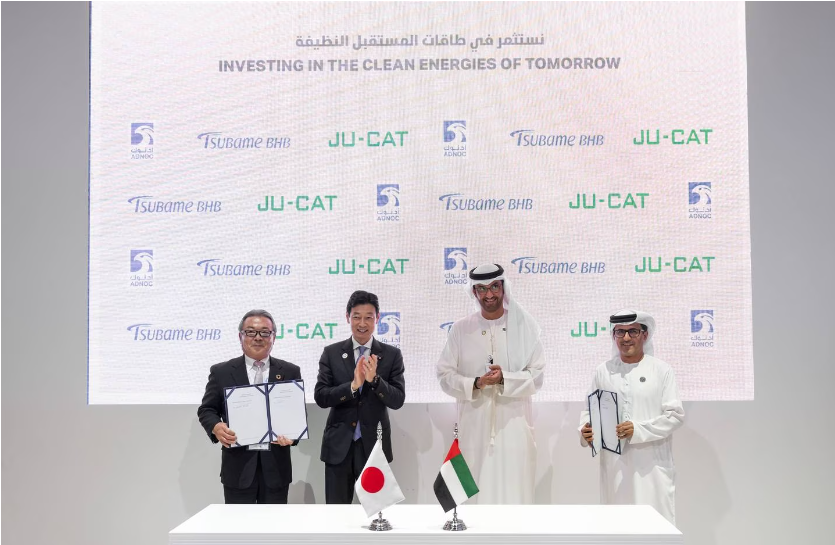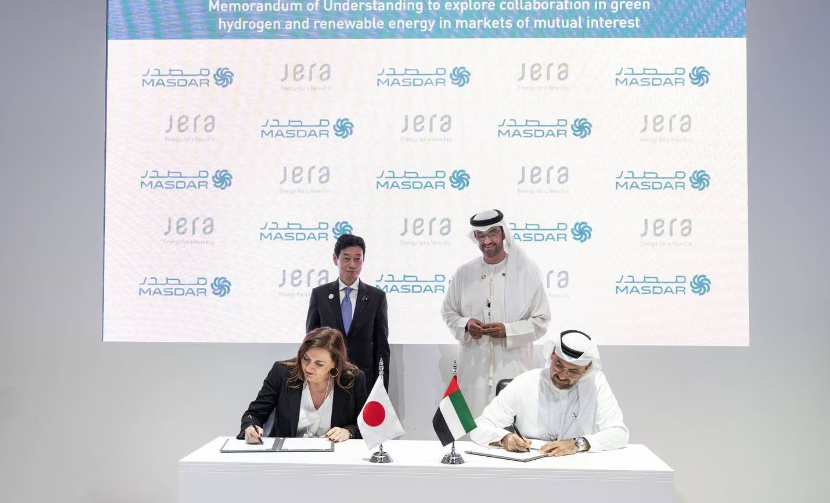
The deals were signed at a meeting between Dr Sultan Al Jaber, Minister of Industry and Advanced Technology and UAE special envoy to Japan, and Yasutoshi Nishimura, Japan’s Minister of Economy, Trade and Industry. Photo: MoIAT
The UAE and Japan signed preliminary agreements and deals on Monday to support energy transition and boost bilateral co-operation.
The deals were signed as Dr Sultan Al Jaber, Minister of Industry and Advanced Technology, UAE special envoy to Japan and Cop28 president-designate, met Yasutoshi Nishimura, Japan’s Minister of Economy, Trade and Industry, on the sidelines of Abu Dhabi Sustainability Week, MoIAT said in a statement on Tuesday.
The ministers discussed ways to further strengthen the relationship between the UAE and Japan under their comprehensive economic partnership, which was signed by the two countries in September.
They explored the hydrogen sector as a key component of the energy transition and also discussed the importance of accelerating progress towards carbon neutrality and opportunities for collaboration ahead of Cop28 in the UAE this year.

The ministers discussed ways to further strengthen the relationship between the UAE and Japan under their comprehensive economic partnership. Photo: MoIAT
"The UAE and Japan have a longstanding and strong relationship that has developed into a comprehensive economic partnership, underpinned by our leaderships’ commitment to enhance co-operation with strategic partners," said Dr Al Jaber.
"We seek to build on this long-term partnership by exploring new opportunities for co-operation and investment that contribute to mutually beneficial sustainable economic growth and diversification.”
The MoIAT and the Japanese ministry signed a preliminary agreement to enhance partnerships between Emirati and Japanese companies as well as explore joint investment opportunities.
The deal also aims to accelerate the adoption of advanced technology in support of both countries’ industrial goals and carbon-reduction targets.

Adnoc signed a joint study agreement with Japan's Tsubame BHB. Photo: MoIAT
Adnoc also signed a joint study agreement with Tsubame BHB to explore research and development co-operation to find new solutions for manufacturing ammonia.
The agreement falls under the Japanese-Emirati partnership for advanced technology and will help connect Japanese technology start-ups with Emirati investors to facilitate their expansion, the statement said.
A preliminary agreement was also signed between Masdar and Japanese company Jera covering green hydrogen and renewable energy.

A preliminary agreement was signed between Masdar and Japanese company Jera. Photo: MoIAT
The economic partnership between the UAE and Japan focuses on the areas of business, trade, energy and industry, as well as diplomacy, enhancing international development and humanitarian aid efforts.
The countries also aim to encourage bilateral investment across technology, manufacturing, infrastructure, artificial intelligence, health care and small and medium enterprises, as well as other high-priority sectors including agriculture, environmental preservation, climate-change solutions, education, science, defence and security.
In November, Dubai-based Emirates National Oil Company signed an initial agreement with Japanese heavy-industry manufacturer IHI Corporation to explore setting up a low-carbon hydrogen and ammonia plant in the UAE, supporting the Emirates' energy transition efforts.
The fuel produced will be exported to Japan and supplied within the UAE, as well as the broader region, for bunkering and other purposes.
In June last year, Adnoc, Eneos Corporation and Mitsui also agreed to explore establishing a hydrogen supply chain between the UAE and Japan.
The companies will evaluate the potential to convert hydrogen as a by-product from Adnoc's refining and petrochemical operations and blue hydrogen produced from natural gas to methylcyclohexane, an efficient form of hydrogen transport, for export to Japan, they said at the time.
Masdar also signed an initial pact with Sumitomo Corporation to develop waste-to-energy projects in June last year. The two companies aim to co-operate on a range of projects, including a plant to treat 390,000 tonnes of waste and generate 25 megawatts of energy annually.
The volume of non-oil trade between the UAE and Japan reached more than Dh49 billion ($13.3 billion) in 2021, according to official figures.
Non-oil trade between the two countries also rose by 4.3 per cent annually during the first nine months of last year.